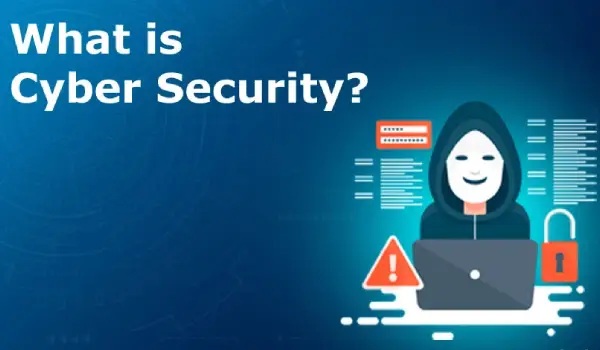Ever wondered how Excise and Taxation Islamabad, along with its counterparts in Punjab, Sindh, and throughout Pakistan, keeps the capital’s fiscal wheels turning smoothly?
At the heart of Islamabad’s financial management, the Excise and Taxation Department plays a critical role in revenue collection and ensuring businesses play by the rules.
From levying taxes to funding essential services and infrastructure, it’s the engine driving Islamabad’s growth. But how does it maintain fairness and transparency while fostering economic prosperity?
Table of Contents
ToggleExcise and Taxation Islamabad Office

The Excise and Taxation Office in Islamabad is a central hub for managing tax related affairs in the capital, alongside its counterparts across Pakistan. Its core functions include assessing, collecting, and enforcing various taxes, duties, including excise taxes, in accordance with legal frameworks.
Additionally, it plays a crucial role in policy formulation, audits, and advisory services to enhance compliance and efficiency. Catering to individuals and businesses, the office offers services such as tax registration, filing returns, issuing certificates and licenses, and processing refunds.
By providing guidance on tax laws and procedures, it aims to promote transparency and ease of doing business while fostering a culture of compliance within Islamabad.
Excise and Taxation Punjab
Comparison with Excise and Taxation Islamabad
- Operates within the provincial government framework, tailored to Punjab’s economy.
- Both focus on revenue collection and regulatory compliance but differ in jurisdiction and structure.
Similarities and Differences in Functions and Services
- Both handle tax administration and offer services like registration and compliance assistance.
- Vary in specific taxes, administrative procedures, reflecting regional needs.
Excise and Taxation Punjab and Islamabad may operate differently, but their shared goal is clear: fostering fiscal stability and economic development.
Director Excise and Taxation Islamabad

Leading the Charge
Bilal Azam
Responsibilities and Duties of the Director
- Strategic planning and policy implementation.
- Resource management and staff supervision.
- Addressing taxpayer grievances and conducting audits.
Importance of Effective Leadership in the Department
- Fosters accountability, innovation, and professionalism.
- Promotes transparency and integrity for public trust.
Empowers agile decision making and flexibility to ensure efficient revenue collection and regulatory compliance.
Excise Taxes

Excise taxes are imposed on specific goods produced domestically or imported, serving dual purposes: revenue generation for the government and discouragement of consumption of harmful products like alcohol, tobacco, and gasoline.
They aim to influence consumer behavior towards more sustainable choices while contributing to public health and environmental conservation.
Excise taxes apply to various goods, including
- Alcoholic beverages (beer, wine, spirits)
- Tobacco products (cigarettes, cigars, smokeless tobacco)
- Fuel (gasoline, diesel, petroleum products)
- Luxury items (high-end vehicles, jewelry, furs)
- Firearms and ammunition (subject to excise taxes under certain regulations)
These taxes not only provide revenue but also help mitigate societal costs associated with excessive consumption and promote healthier and more environmentally friendly alternatives.
Vehicle Verification

Vehicle verification is crucial for ensuring road safety, preventing crimes, and maintaining regulatory compliance. It confirms vehicle authenticity, ownership, and legal status, helping to deter theft, fraud, and unauthorized use, while enhancing overall public safety.
Procedure for Vehicle Verification
- Access the official website or designated verification centers.
- Provide vehicle information: registration number, chassis number, and engine number.
- Pay verification fees, if applicable.
- Submit required documents: registration papers and identification proof.
- Await verification results, confirming vehicle details and legal status.
Online Verification and Token

Convenience
- Online verification and token issuance offer ease and accessibility.
- Users can verify vehicle details and obtain tokens from anywhere, eliminating the need for physical visits.
Advantages
- Digitized processes enhance operational efficiency and reduce paperwork.
- Improved data accuracy, security, and accessibility lead to faster decision making and better service delivery for stakeholders.
MTMIS Islamabad

Overview
- MTMIS is a centralized database for vehicle registration and management in Islamabad.
- It tracks vehicle information, ownership details, and regulatory compliance.
Benefits
- For vehicle owners: Easy access to accurate information, streamlined administrative procedures.
- For authorities: Enhanced regulation enforcement, improved tracking of vehicle-related activities, and combating vehicle-related crimes.
Transfer Fee

The vehicle transfer fee is a mandatory charge levied when transferring ownership of a vehicle from one party to another. This fee ensures that the relevant authorities update vehicle records to reflect the change in ownership accurately.
It typically covers administrative costs associated with processing the transfer, updating registration documents, and maintaining the vehicle database.
Factors Influencing Transfer Fee Calculation

Several factors influence the calculation of the transfer fee, including the type and value of the vehicle being transferred, jurisdictional regulations governing transfer fees, applicable taxes or duties, additional administrative charges imposed by the relevant authorities, the age and condition of the vehicle, any outstanding fines or penalties associated with the vehicle, and the method of transfer (e.g., individual to individual, dealership sale, inheritance).
Vehicle Transfer Fee Data
Private / Commercial Vehicles
Up to 1000 cc: Rs. 1,200
From 1001 cc to 1800 cc: Rs. 2,000
Above 1801 cc: Rs. 3,000
Advance Fee for Transfer Case (Private & Commercial Vehicles )
Up to 850 cc
- Filer: NIL
- Non-Filer: Rs. 5,000
From 851 cc to 1000 cc
- Filer: Rs. 5,000
- Non-Filer: Rs. 15,000
From 1001 cc to 1300 cc
- Filer: Rs. 7,500
- Non-Filer: Rs. 30,000
From 1301 cc to 1600 cc
- Filer: Rs. 12,500
- Non-Filer: Rs. 60,000
From 1601 cc to 1800 cc
- Filer: Rs. 20,000
- Non-Filer: Rs. 100,000
From 1801 cc to 2000 cc
- Filer: Rs. 25,000
- Non-Filer: Rs. 135,000
From 2001 cc to 2500 cc
- Filer: Rs. 40,000
- Non-Filer: Rs. 200,000
From 2501 cc to 3000 cc
- Filer: Rs. 50,000
- Non-Filer: Rs. 270,000
Above 3000 cc
- Filer: Rs. 62,500
- Non-Filer: Rs. 300,000
Contact Information
Accessible contact information is essential for effective communication with Excise and Taxation Islamabad. It ensures prompt assistance and fosters trust and transparency.
Ways to Reach
Phone: Call (051) 9265588 for immediate assistance.
Website: islamabadexcise.gov.pk
In-person Visit: Visit the office directly for assistance or inquiries.
Address: Adjacent to HEC Building, Service Road, Sector H-9, Islamabad
Form Download
Excise and Taxation Islamabad provides downloadable forms and documents for various administrative purposes, including tax registration and vehicle transfers.
This online resource simplifies administrative processes, enabling taxpayers to access and fill out required forms conveniently, reducing the need for physical visits and paperwork. By offering these downloadable resources, the department promotes efficiency and transparency in regulatory compliance.
Departmental Operations

The Excise and Taxation Department’s operations involve tax collection, regulatory compliance, and enforcing taxation laws to ensure revenue generation and adherence to tax regulations.
Efficiency and transparency are prioritized through modern technology and streamlined processes, promoting effective revenue collection, compliance, and public trust in the taxation system.
Timing and Working Days
The Excise and Taxation Department welcomes stakeholders from 8 am to 4 pm, Monday to Friday, ensuring accessibility for all tax-related inquiries and transactions.
Clear communication of these operational hours fosters convenience, allowing stakeholders to plan their visits accordingly. This transparency promotes efficiency and satisfaction in interactions with the department, enhancing overall service delivery.
Job Opportunities

Excise and Taxation Islamabad offers employment across various positions, including:
- Tax Inspectors
- Tax Officers
- Administrative Assistants
- Compliance Officers
Positions cater to individuals with diverse skills and qualifications.
Employment prospects provide avenues for career growth and professional development within the taxation sector.
Joining Excise and Taxation Islamabad allows individuals to contribute to public service by ensuring efficient revenue collection, promoting regulatory compliance, and enhancing transparency in taxation processes.
FAQs
How can I check my Islamabad registered vehicle online?
You can check your Islamabad registered vehicle online by visiting the Excise and Taxation Islamabad official website. This allows you to view vehicle details and ownership information easily.
How do I check my car tax token?
To check your car tax token, visit the Excise and Taxation Islamabad portal. Enter your vehicle registration number to see the token status.
How to pay Islamabad excise Token Tax online?
You can pay your Islamabad excise Token Tax online through the Excise and Taxation Islamabad website. Payments are secure and convenient.
What is the car transfer fee in Islamabad?
The car transfer fee in Islamabad varies based on the vehicle’s category and engine capacity. You can find detailed information on the Excise and Taxation Islamabad website.
How can I verify my vehicle ownership in Islamabad?
Vehicle ownership can be verified online using the Excise and Taxation Islamabad portal. Simply input your registration number to get ownership details instantly.
Can I check Islamabad vehicle challan fines online?
Yes, Islamabad vehicle challan fines can be checked online through the Excise and Taxation Islamabad website. This ensures you stay updated on any pending fines.
How do I renew my car token in Islamabad?
Car token renewal in Islamabad can be done online via the Excise and Taxation Islamabad portal. It’s a quick process that saves a trip to the office.
Is it possible to update vehicle owner information online?
Yes, you can update your vehicle owner information online through the Excise and Taxation Islamabad platform. Ensure your documents are ready for verification.
How to calculate Islamabad vehicle road tax?
Road tax calculation for Islamabad vehicles can be done using the Excise and Taxation Islamabad website. Select your vehicle type and engine capacity to get the exact amount.
Can I download my car token online in Islamabad?
Yes, you can download and print your car token online directly from the Excise and Taxation Islamabad website once it’s paid and verified.
Conclusion
Summing it up, Excise and Taxation Islamabad is a major financial player. It guarantees strong collection of revenue and rule observance. This role in supporting regional economic stability and growth is crucial.
Also, the department’s steady emphasis on productivity, openness, and updates is worthy of praise. Adopting technology innovations and honing procedures, their goal is to boost their services. At the same time, they aim build trust and assurance in how they operate amongst the public.




